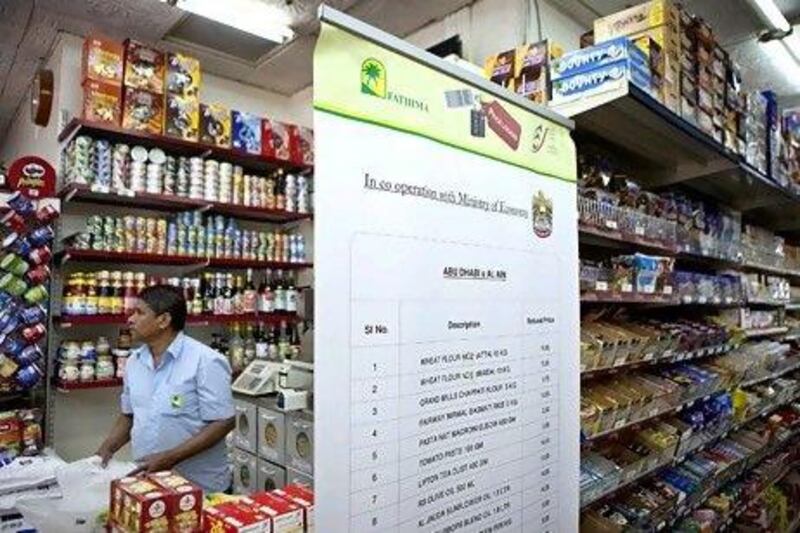Food prices have fallen in the UAE this year after the Government tightened its control on suppliers and retailers to contain inflation.
Measures introduced in the first three months of the year have helped to lower the prices of basic commodities, according to an analysis by The National.
A basket of basic foods, including flour, bread and meat, now costs 15 per cent less than in December, and prices for branded goods such as Kellogg's cornflakes and Heinz ketchup have fallen by 7 per cent.
Food prices in the UAE are also highly competitive in relation to prices in markets such as the United States, the United Kingdom, mainland Europe and Australia.
In the Gulf, Saudi Arabia is slightly cheaper for a basket of products, while India's prices compare favourably against the UAE's.
"Obviously the [Government's] moves have had an effect," said V Nandakumar, the spokesman for Lulu Hypermarket. "It's a joint venture by the government authorities and hypermarket operators."
The Ministry of Economy at the end of February launched an online monitoring system to track the prices of 200 basic goods on a weekly basis at the major supermarkets and hypermarkets.
Using the electronic system, retailers each Tuesday report to the Ministry the prices at which they obtain goods from suppliers and the prices at which they retail those goods to the public.
The new system follows a countrywide agreement last May between the Government and supermarkets to lower or fix the prices of 400 basic foods and other goods until the end of last year.
To increase competition the Government also opened up the trade in basic foods in January, ending the requirement for middlemen and giving supermarkets the freedom to source products from any supplier, anywhere.
"We are tapping different suppliers from around the world and importing products directly from these countries," said Mr Nandakumar. "We are trying to cut out the middleman where possible."
The prices of basic goods such as flour, bread, rice and pasta are often 25 per cent lower at Carrefour in the UAE than at global peers such as Tesco in the UK, Coles in Australia and Safeway in the US.
The UAE basket of basic goods is 23 per cent higher than at Spar International in India and 2 per cent more than at Danube in Saudi Arabia. The National compared prices of nearly 40 branded and staple foods and other goods.
Carrefour, which is operated in the Emirates by the UAE company Majid Al Futtaim as franchisee, is the biggest grocery retailer in the country, according to Euromonitor International, an information consultancy. Carrefour Majid Al Futtaim declined to comment.
Aside from price controls, analysts say, factors such as low import duties and affordable logistics and transport in this region are keeping prices lower in the Emirates.
The UAE has very little tax on foods compared with other parts of the world.
"There's now a lot of competition [among retailers]," said Matthew Green, head of research at CBRE in the UAE. "We are oil-producing countries in the Middle East, so potentially the costs are a lot less."
Retailers said fuel prices were the biggest obstacle to keeping prices low this year.
Michael Wright, the chief executive of Spinneys, said the higher oil prices of recent months could persist - given the international tensions involving Iran - and feed through to retail food prices.
"The biggest pressure at the moment is oil. The fuel prices are in everything," he said. "If you take cleaning products, cooking oils, it's all oil [price]-based."





